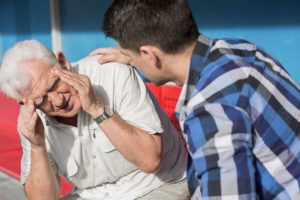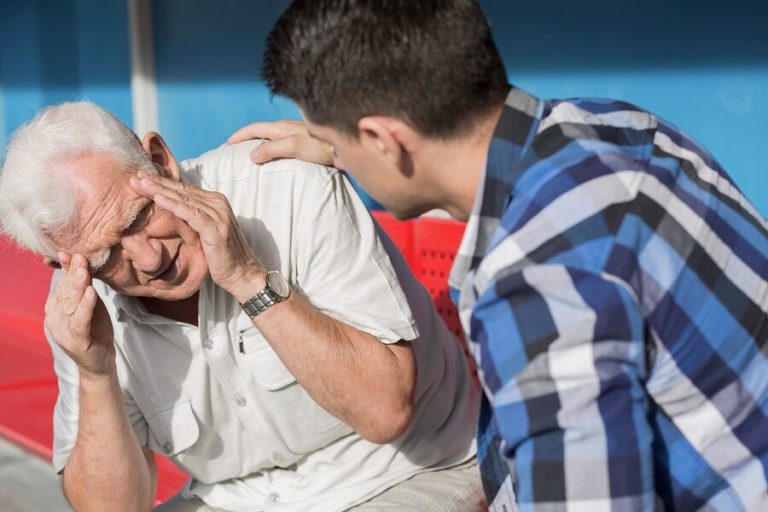While everyone experiences the feeling of dizziness on occasion, it can be a warning sign if it happens too often in elderly adults. Dizziness, the feeling of spinning or lightheadedness, is a symptom of some kind of disorder in the body. While dizzy spells that are mild and only take place occasionally are nothing to worry about, frequent dizziness over long periods of time may need attention from a doctor.

Family caregivers and senior care assistants should carefully observe the frequency and seriousness of dizzy spells with elderly adults.
For seniors that experience dizziness, they often feel lightheaded or faint and describe their surroundings as spinning. The result is loss of balance and unsteadiness. In extreme cases, elderly adults may also experience nausea or vomiting. Dizziness can also cause slip and fall accidents that can result in head injuries, broken bones, sprains and more.
Seniors should ask for help from family members or senior care assistants if they feel dizzy while they are moving around.
There are many conditions and illnesses that can trigger dizziness. Some of the more common reasons seniors feel dizzy is due to medication side effects, alcohol consumption, caffeine intake, dehydration and malnutrition. Other causes of dizziness include migraines, vertigo, irregular blood pressure, anxiety, stress, inner ear infection, fluid build-up in the inner ear, anemia, heat stroke and low blood sugar. In certain rare cases, it can be caused by a brain tumor, multiple sclerosis, or brain disorder.
Prolonged dizzy spells mean that the elderly person should be examined by a doctor.
Some conditions that cause dizziness also trigger other symptoms. If seniors complain about sudden dizziness to family caregivers and senior care assistants along with certain other feelings, it is a red flag that the person is not doing well. Other symptoms that may appear with dizziness include a fever, neck ache, headaches, blurry vision, hearing loss, numbness or tingling, chest pain or fainting. A combination of these symptoms may indicate a serious medical emergency.
Family caregivers and senior care assistants that are near to the aging adult that complains of dizziness need to take several steps to ensure health and safety. Of course, the senior should sit town immediately until the feeling goes away. They should use handrails on stairs and lean on a cane or walker if they need to move. Seniors should avoid sudden movements or fast twists of the head or neck. They should have plenty of water to drink but not caffeinated beverages.
If the dizzy spell is minor it should fade within the next ten or so minutes or so. If not, family members may need to get their loved one to a doctor for evaluation.
Source: http://www.enttoday.org/article/vertigo-in-the-elderly-what-does-it-mean/






